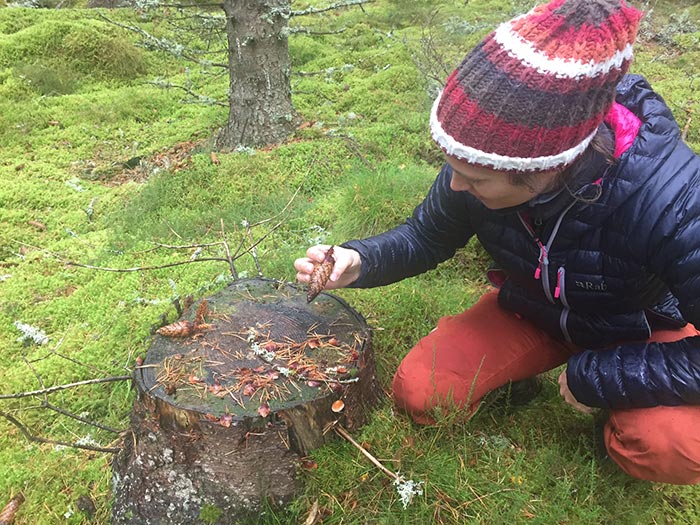Squirrel Course
Red squirrels and their ‘dreys’ (nests that squirrels use for shelter and breeding) are protected under UK and Scottish legislation and as such, their presence needs to be considered when planning forest management operations. Any potential disturbance or damage to squirrels or their dreys needs to be mitigated, which can potentially be impractical in the field and is often costly. On the 23rd of November 2016, Kenny Kortland (Species Ecologist at Forest Enterprise Scotland) organised a one day course on “Squirrel licensing and dry surveying” in Birnam (near Dunkeld) to discuss the practical difficulties associated with this. Environment, Forest and Wildlife Rangers and Managers from all over Scotland attended this day and several SNH Licensing Officers were present. One of the key speakers was Dr Peter Lurz, who has been working on red squirrels for more than 25 years and who gave an excellent overview of squirrel biology relevant to mitigation. There was an extensive Q&A session with Dr Ben Ross, who leads the licensing team at SNH, about the practical issues experienced with mitigation. The day included field visits during which we tried to locate (active) squirrel dreys in the field, which was extremely useful in highlighted some the challenges of mitigations that were discussed earlier that day. It was also highlighted that there are knowledge gaps about the impact of forest operations on red squirrels and the effectiveness of current mitigation measures.

In January 2017, we will start field work on a research project to begin bridging some of these gaps. The project aims to develop science-based mitigation measures to inform the licensing process. We will investigate how red squirrels respond to habitat fragmentation and habitat loss caused by forest operations and will also look at the potential of using nest boxes as a possible mitigation measure on sensitive sites or at sensitive times a year. To do this, squirrels will be trapped and tagged with state-of-the-art, light weight GPS equipment, and their movements will be followed for a 6-month period during which forest operations take place. This project aims provide empirical evidence to gain better understanding of the relationship between forest practices and red squirrel ecology to allow timber production to be effectively integrated with red squirrel conservation.
For more information about this project, please contact Louise.de-raad.ic@uhi.ac.uk